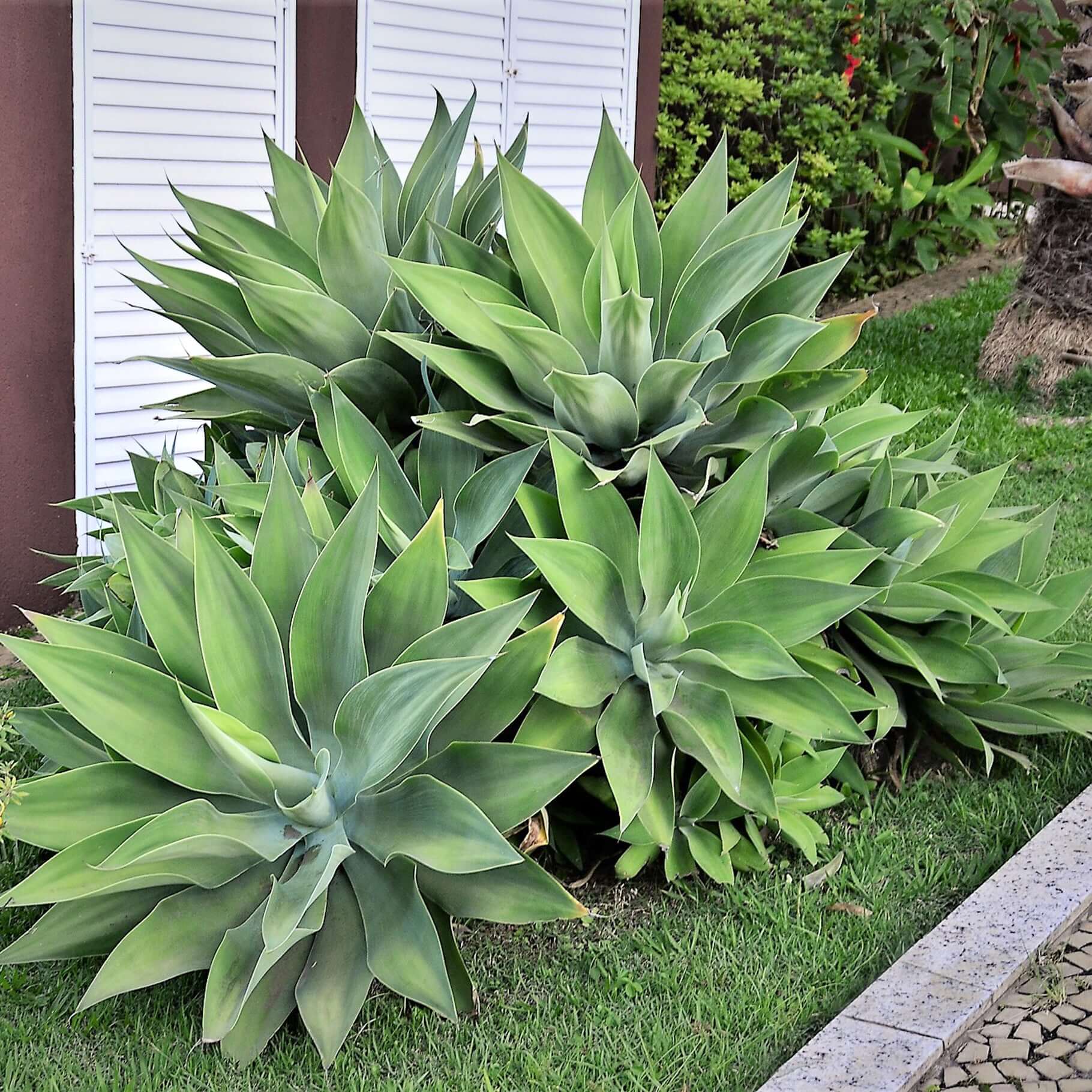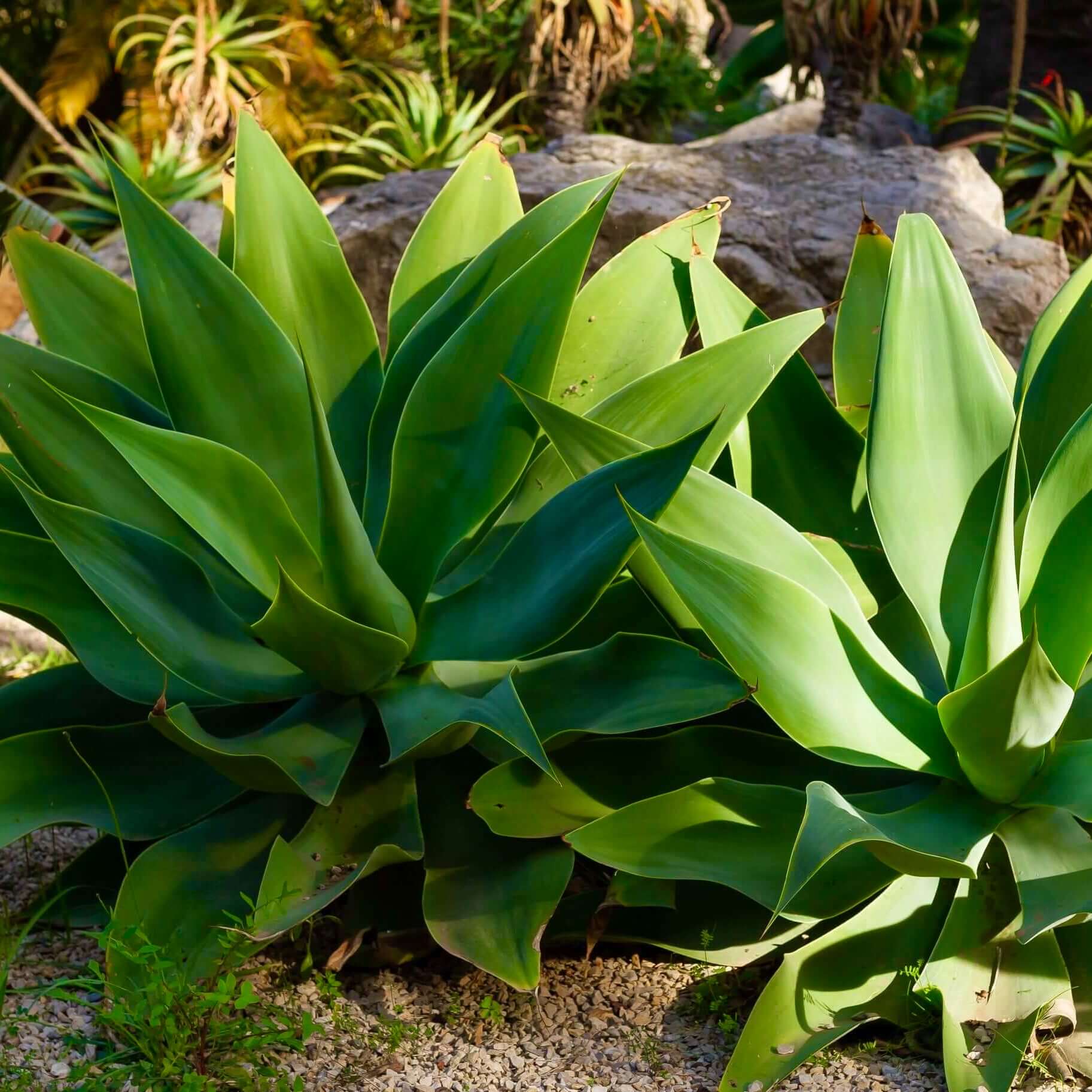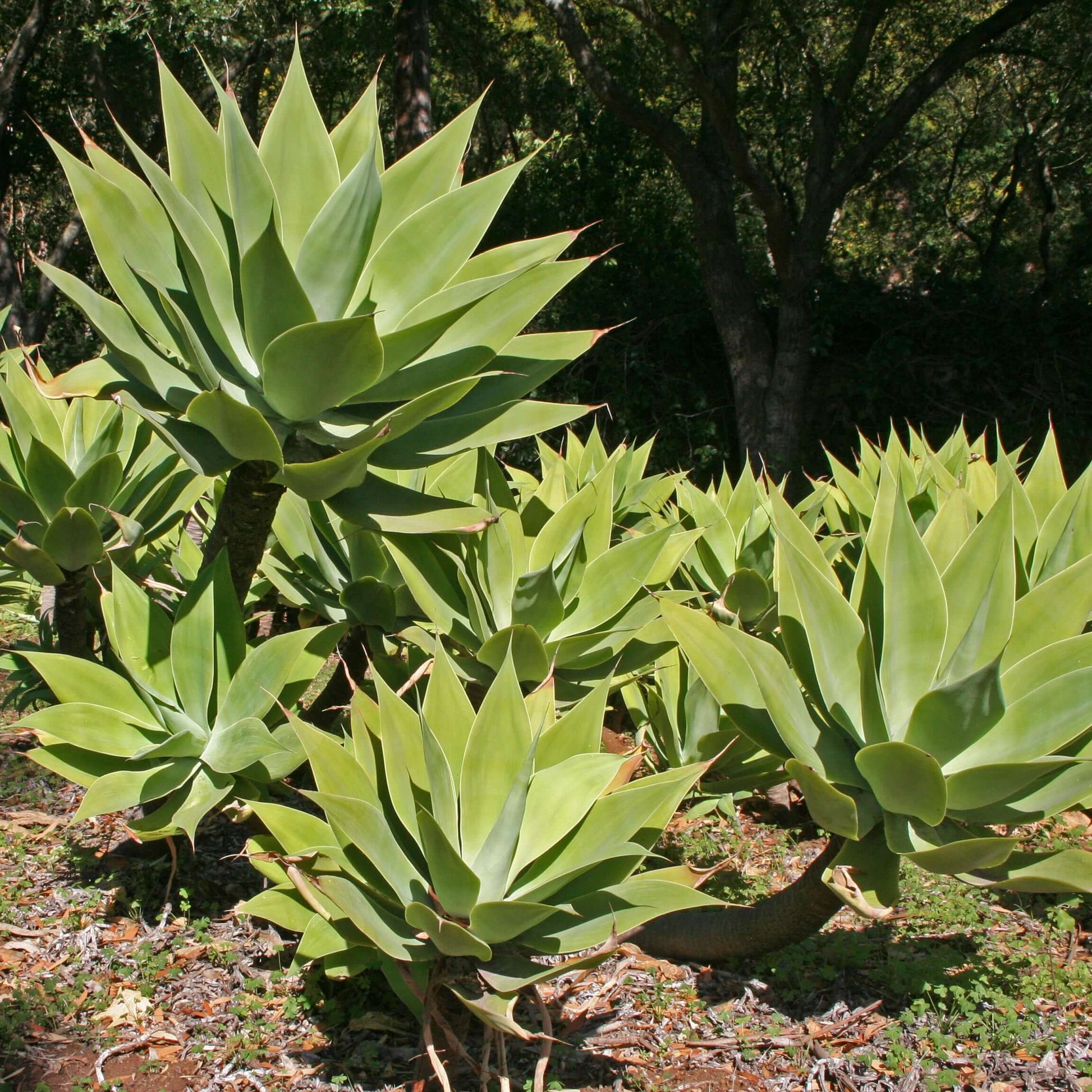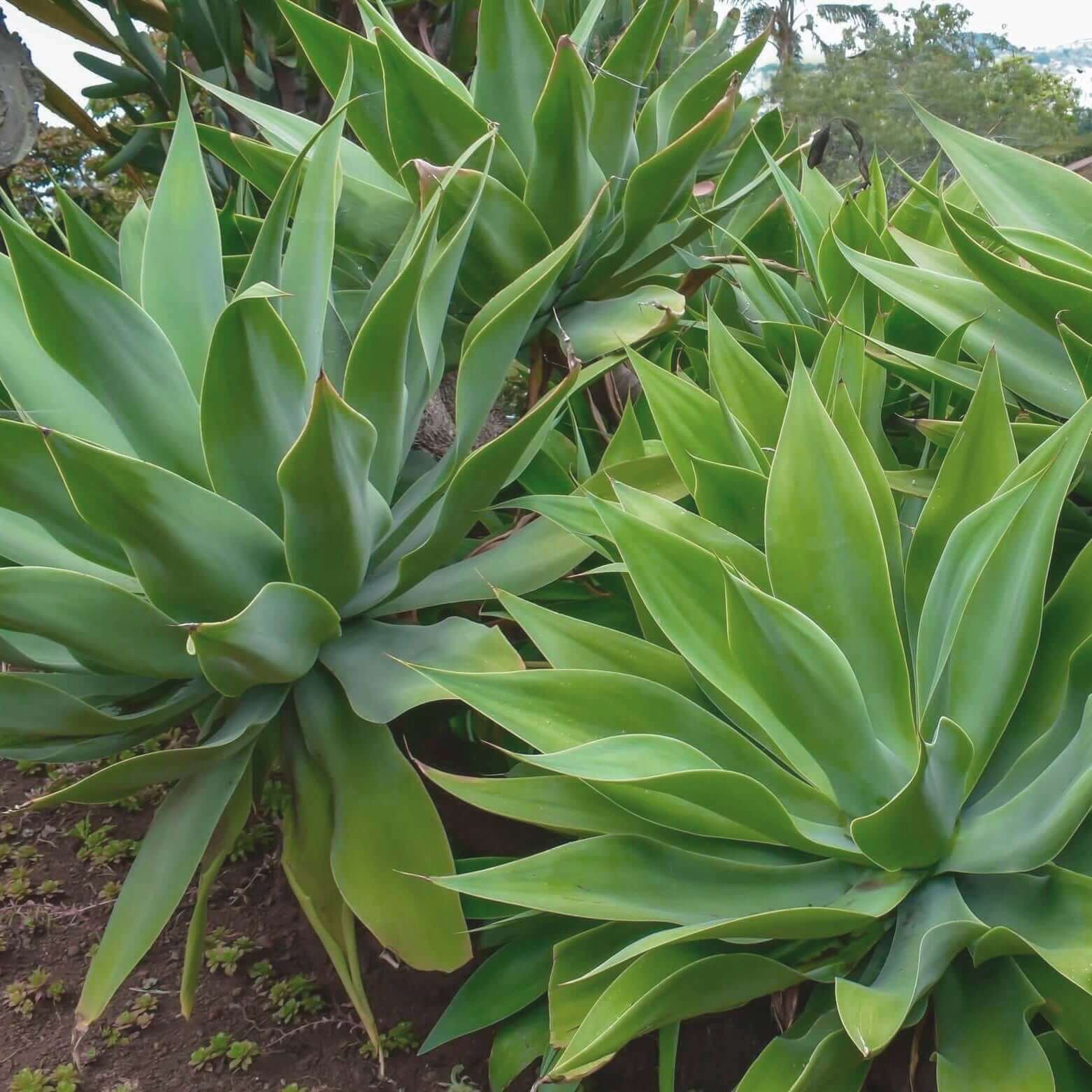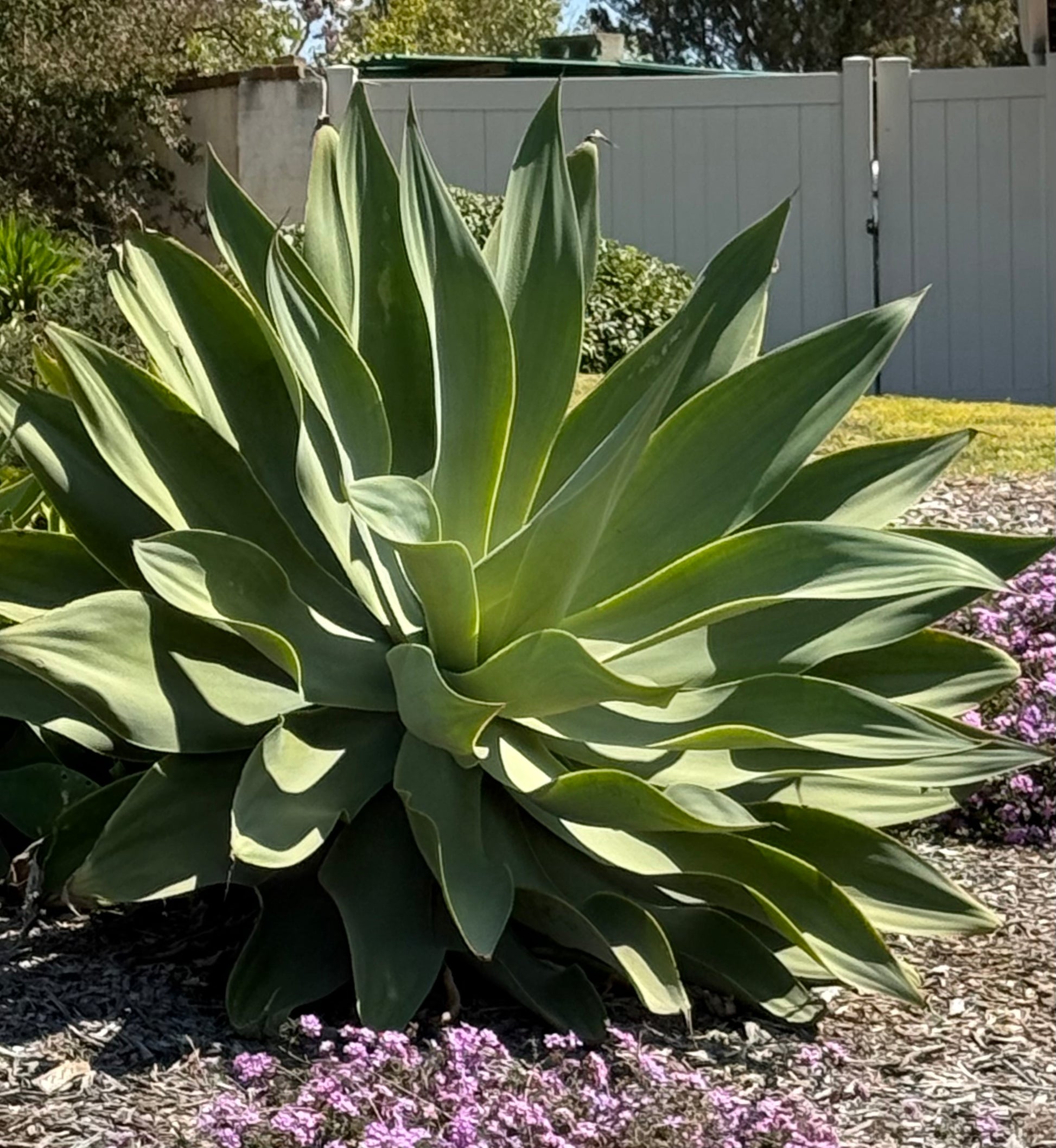
Foxtail Agave
Agave attenuata
24-hour money-back guarantee
Free delivery on orders over $349
Delivery
Big Project? Call 888-444-1126 for bulk rates!
The Foxtail Agave is a gentle species with a graceful appearance that is popular for its easy nature and smooth, pliable, pale green leaves free from menacing teeth or claws.
Agave attenuata is a frost-tender, elegant agave with large rosettes and an unusual, trunk-forming stem. This moderately-fast growing agave freely produces offsets creating colonies up to 10 feet wide. Each individual rosette may grow 4 ft. wide and has 15 to 35 leaves that are apple-green or grey-green, soft, slightly curved, and wider in the middle. The smooth, light grey, bare stem is distinctive and varies in length from 1.5 to 5 ft. from the base.
The soft, harmless leaves make Agave attenuata a great choice near pathways or in patio containers. It can be planted as individual accents or in groupings throughout the garden, in borders, or on slopes. The Fox Tail Agave is stunning in succulent gardens, waterwise landscapes, as well as Mediterranean or Southwest garden design styles.
This low-maintenance agave is easy to grow and drought-tolerant, making it an ideal choice for frost-free gardens of all sizes. With its large, soft rosettes resembling green flowers, the Fox Tail Agave adds beauty and lushness to the landscape. Order your Fox Tail Agave today for delivery to your home.
How tall and wide does a Foxtail Agave grow?
When does a Foxtail Agave bloom?
What kind of sunlight and soil does it prefer?
How much water does it need?
3-6 ft.
4-6 ft.
Low
Perfect Your Landscape With Expert Help
Customize your yard with confidence. Schedule your free consultation today and bring your outdoor space to life!
